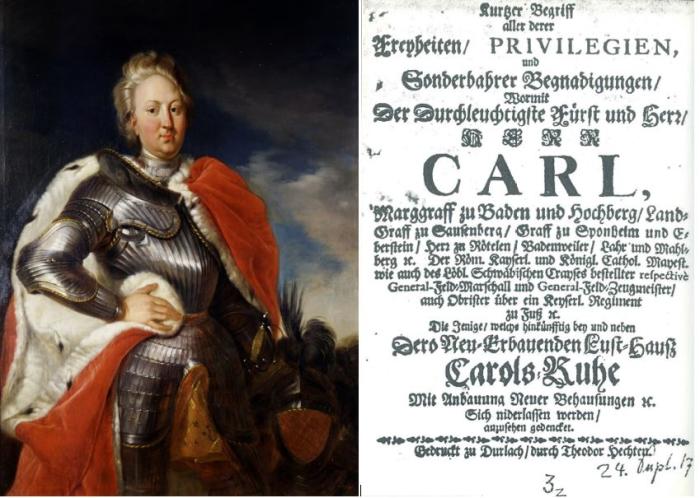Milestones in the history of law

Karlsruhe symbolises the “residence of law". In addition to the Federal Constitutional Court, the Federal Court of Justice and the Attorney General of the Federal Republic of Germany are based here. The fan-shaped city is the representative of our modern, democratic constitutional state.
But even long before the Federal Republic of Germany was founded, Karlsruhe and the Baden region were among the pioneers in the development of our current understanding of the law.
| 1715 | When the town was founded, Margrave Wilhelm von Baden-Durlach laid down rights for the inhabitants of his new town in a letter of privilege that was far ahead of its time. Among other things, the citizens of the town were granted religious freedom and 20 years of tax exemption. |
| 1746 | In this year, Karl Friedrich took over the government as Margrave of Baden-Durlach. During his reign, important legal matters were passed. Among other things, serfdom and torture were abolished. In addition, the way was paved for the independence of the judiciary. |
| 1818 | The First Baden Constitution was adopted. The constitution, signed by Grand Duke Karl Ludwig Friedrich, was long regarded as one of the most progressive constitutions in Europe. |
| 1822 | The Ständehaus is opened. It is the first parliament building designed for this purpose in the German Confederation. |
| 1848 | As in many regions of Central Europe, a revolution took place in Baden in 1848. The revolutionary leaders demanded the abolition of princely rule and the establishment of a republic. |
| 1863/64 | The Baden Administrative Court was the first independent administrative court in Germany. |
| 1893 | The first German girls' grammar school opens: the Lessing-Gymnasium. |
| 1950/51 | Germany's highest legal institutions begin their work and are based in Karlsruhe: the Federal Constitutional Court, the Federal Court of Justice and the Federal Public Prosecutor General at the Federal Court of Justice. |












